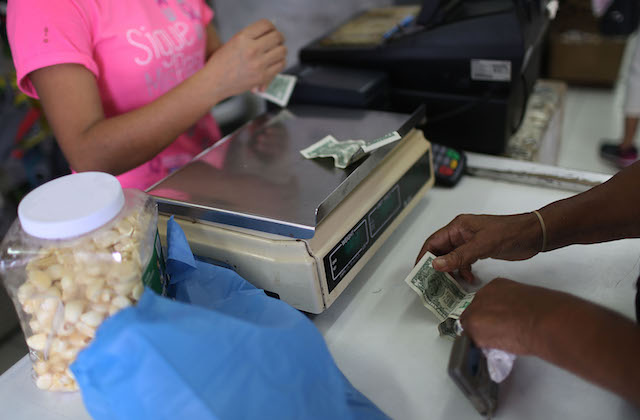A report released yesterday (January 9) by the Office of the United Nations High Commissioner for Human Rights warns against combating Puerto Rico‘s $72 billion debt crisis with actions that violate citizens’ civil liberties, such as cutting social services.
Report author Juan Pablo Bohoslavsky, an independent expert on foreign debt and human rights, writes that previous austerity measures including "tax increases, salary freezes, suspension of collective bargaining agreements and a reduction of more than 27 percent of government employment since 2008" only worsened the commonwealth’s recession.
To that end, Bohoslavsky cautions against measures that would further negatively impact Puerto Ricans’ fiscal and personal stability. "The population in Puerto Rico cannot be held hostage to past irresponsible borrowing and lending," he writes.
Bohoslavsky argues for several measures that could alleviate Puerto Ricans’ economic suffering: extension of Supplemental Security Income (SSI) benefits enjoyed on the mainland to Puerto Ricans living with disabilities, tax credits to counteract families’ financial burdens and fairness in federal health care funding. He also demands that debt holders, including hedge fund investors, take some share of the losses.
Bohoslavsky also criticizes austerity proposals from the Financial Oversight and Management Board, which was created via PROMESA (Puerto Rico Oversight, Management and Economic Stability Act) in June. He highlights the creditor negotiation oversight agency’s plans to downsize labor regulations as particularly dangerous, saying that similar early reforms "undermined workers’ rights and increased the number of persons employed in underpaid and insecure work."
Reuters reported in November that the Board set January 31 as a target date for Governor Alejandro Garcia Padilla to submit a recovery plan. The outlet also listed Puerto Rico’s unemployment rate at 45 percent. According to the Pew Research Center, the island’s population decreased 7 percent between 2010 and 2015 as the economic crisis and recession worsened, compelling many to emigrate to the mainland.
Read the full report here.
